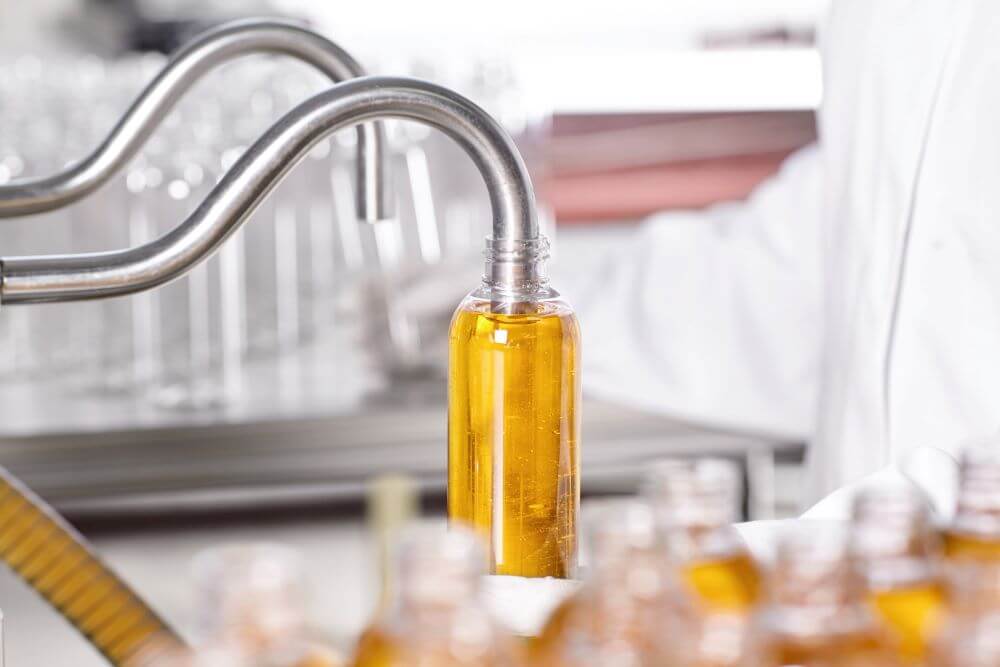When it comes to efficient liquid packaging, choosing the right filling machine can make a significant impact on your production quality, speed, and consistency. Among the many types available, piston filling machines have become a reliable choice for companies handling thick, viscous, or particulate-filled products. But how do you know if this technology fits your specific needs? This article breaks down how a piston filling machine works, what it’s best suited for, and whether it aligns with your production line goals.
What Is a Piston Filling Machine and How Does It Work?
A piston filling machine uses a piston-driven mechanism to draw and dispense a precise volume of liquid into each container. During the intake stroke, the piston retracts to draw product into a cylinder from a supply tank. On the discharge stroke, the piston pushes the product through a nozzle into the waiting bottle or jar. This mechanical, volumetric approach makes it highly accurate and consistent across different container sizes.
There are several variations, including the automatic piston filling machine, which integrates into fully automated production lines and operates at high speeds with minimal manual input. For producers needing flexibility, the volumetric piston filler allows adjustments in stroke length to accommodate different fill volumes, making it ideal for multi-SKU operations. A liquid piston filling machine is specially designed to handle both thin and viscous products, while a piston liquid filling machine adds precision to every cycle, regardless of product consistency. When scaled for production lines, a piston pump filling machine becomes an efficient solution for filling thick liquids or products containing particulates.
This method is ideal when product consistency varies or when maintaining exact fill levels is crucial. Because the fill is based on volume rather than flow rate, even products with suspended solids are accurately dispensed.
Ideal Applications for Piston Filling Machines
Piston filling machines excel in applications involving medium to high-viscosity products, as well as those that include particulates. Industries that benefit from this type of machine include:
- Food and Beverage – Ideal for sauces, salsas, jams, honey, dressings, and yogurt
- Personal Care and Cosmetics – Used for creams, lotions, gels, scrubs, and shampoos
- Pharmaceuticals – Effective for syrups, gels, and other semi-thick medicinal products
- Chemical and Household Products – Great for detergents, cleaners, and sealants
These machines are also well-suited for sanitary environments. Many are constructed from stainless steel and meet FDA and GMP standards, especially when used in food or pharmaceutical settings.
Advantages of Using a Piston Filling Machine
A piston filler offers several compelling advantages that make it a dependable option for a wide range of products:
- High Fill Accuracy – The piston delivers the same volume every cycle, minimizing waste and overfill.
- Gentle Product Handling – The slow and even flow is ideal for products with suspended solids.
- Versatility – Handles a wide range of container sizes, fill volumes, and product types.
- Easy Cleaning and Maintenance – Simple disassembly and clean-in-place (CIP) options make sanitation efficient.
- Adaptability – Can be used in both semi-automatic and automatic filling machine setups.
Because of these features, a rotary piston filling machine is commonly used in operations that require both speed and viscosity control, allowing multiple heads to work in unison for faster throughput.
When a Piston Filler Might Not Be Ideal
While piston filling machines are versatile, they aren’t always the perfect match. They may not be suitable in the following scenarios:
- Low-viscosity or foamy products – Thin liquids like water or alcohols can be better handled by gravity or overflow fillers.
- Carbonated products – The mechanical pressure can disturb carbonation, making overflow fillers more suitable.
- High-speed operations – If ultra-high speeds are a priority, rotary or gravity fillers might outperform piston systems.
- Abrasive substances – These can wear down seals and internal components over time.
For high-volume manufacturers producing only thin liquids, investing in a different filling machine type may yield better long-term efficiency.
How to Decide If a Piston Filler Fits Your Production Line
Not sure if a piston filling machine is right for your setup? Use the following checklist to help guide your decision:
- Product Viscosity – Is your product thick, chunky, or difficult to flow?
- Fill Volume Consistency – Do you need precise, repeatable measurements?
- Output Goals – Are you working in mid-to-high volume production, but not ultra high-speed?
- Automation Needs – Do you need a semi-automatic or automatic piston filling machine?
- Container Variety – Are you filling different shapes or sizes regularly?
- Budget Constraints – Do you need performance without the cost of fully custom systems?
If your answers lean toward thick liquids, accurate dosing, and flexible container types, a piston filler could be your ideal solution.
Conclusion
Choosing the right filling machine is critical to your operational success. For businesses dealing with viscous, textured, or specialty liquids, piston filling machines provide the accuracy, control, and versatility that many other systems can’t match. Whether you’re operating a boutique food company or scaling up a cosmetics brand, a piston pump filling machine can help maintain product integrity and improve production efficiency.
However, it’s important to weigh the nature of your product and your production goals before making a decision. When in doubt, consult with a trusted machinery supplier who can help you compare technologies and determine whether a piston filling machine or an alternative setup will serve your needs best.


